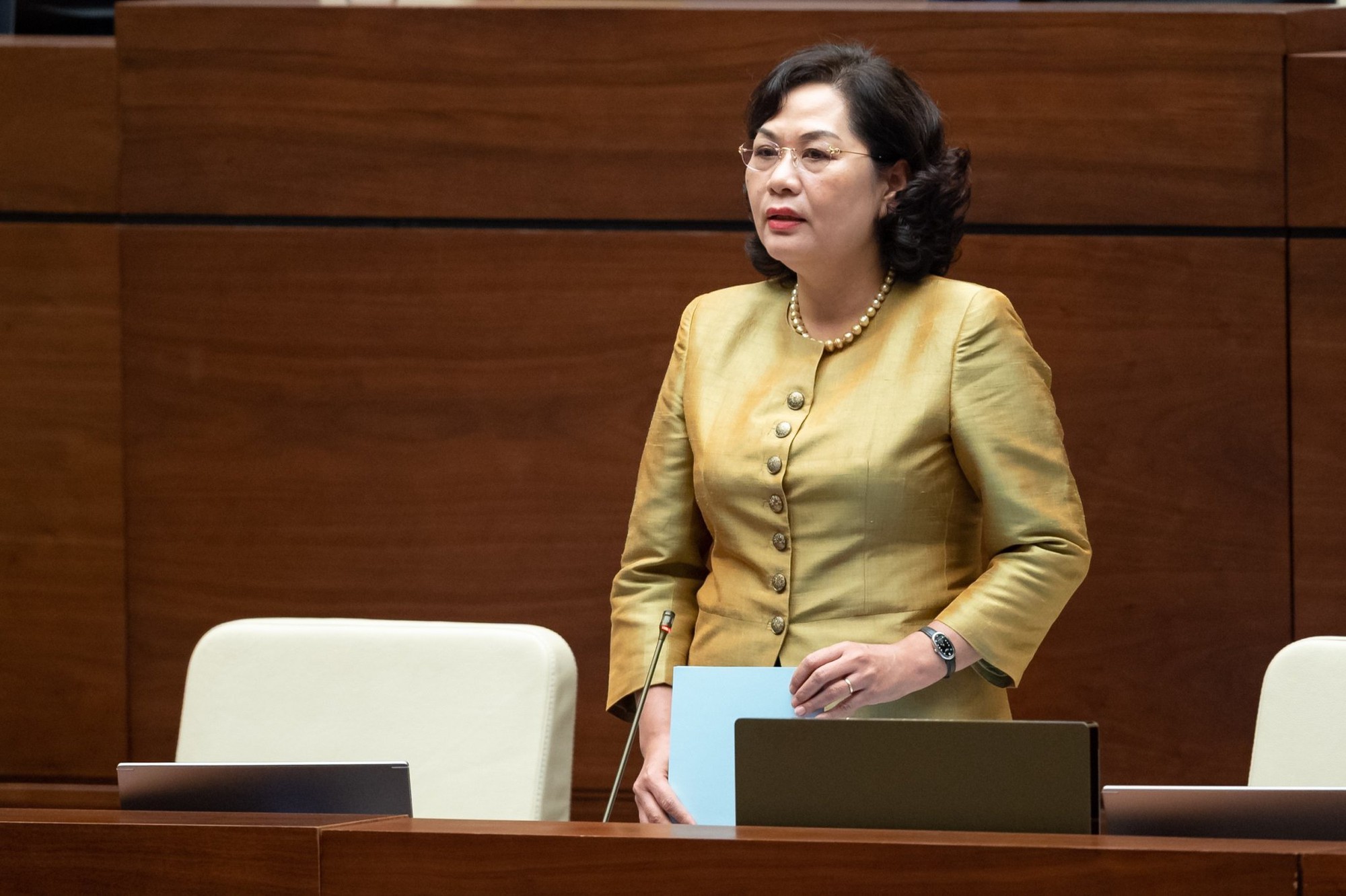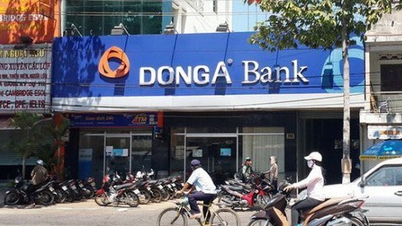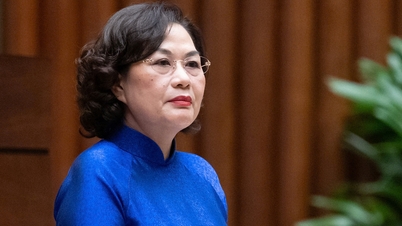Explaining opinions on the draft revised Law on Credit Institutions on the afternoon of June 10, State Bank Governor Nguyen Thi Hong said that the bill received a lot of attention with more than 120 opinions.

Governor of the State Bank Nguyen Thi Hong
According to her, the bill adds many new concepts, such as limits on shareholder ownership and related persons as well as credit limits, aiming to prevent manipulation and cross-ownership in banking activities. This is also a requirement of the Politburo and all levels. In particular, the concept of related persons is expanded in scope compared to the Enterprise Law.
The Governor also said that the law does not allow cross-ownership, but in practice, shareholders ask related people to stand in their names without the bank knowing. “Recently, some new cases have been discovered with cases of standing in their names. To thoroughly handle cross-ownership, not only this regulation but also many tools and solutions from different agencies such as making transactions of enterprises transparent,” Ms. Hong said.
Risks when investing in businesses that depend heavily on banks
Regarding the concerns of delegates that reducing the credit limit for a single customer or for a single customer and related people will cause difficulties and reduce the total credit of the economy, Governor Hong said that currently, the investment demand and Vietnamese enterprises are heavily dependent on the banking system. International organizations have also warned of risks if investment capital continues to depend on banks.
“Whenever the world economy fluctuates in a complex way, affecting businesses and people, it will also affect banks. When banks have a domino effect, it will greatly affect the economy. Therefore, the development of capital markets, bonds, and securities must be synchronized,” Ms. Hong stated.
In particular, regarding early intervention when a mass withdrawal incident occurs, according to Ms. Hong, this is a new point of the draft based on the practical difficulties in handling weak banks in the past as well as the mass withdrawal incident of SCB in October 2022 and the collapse of a series of banks in the US.
During the inspection, the regulatory agency will warn credit institutions in case of problems and intervene early if there is a risk. The bank owner must have a solution, the regulatory agency will propose intervention measures.
Specifically, the State Bank will have measures to support as a lender of last resort when credit institutions encounter liquidity difficulties when paying people, as well as mobilize from other credit institutions, deposit insurance, etc.
“Vietnam’s deposit insurance is only used when credit institutions go bankrupt. But from the experience of the world, such as the US, deposit insurance agencies are slow to play their role. Like SCB, credit institutions also share loans, but the law does not have specific regulations, so they do not dare to lend because they are afraid of risks,” Ms. Hong said, explaining that the revised bill will be designed to mobilize more support sources, increase system safety, and reduce financial costs for management agencies when handling incidents of credit institutions.
Notably, according to the Governor of the State Bank, international experience is not to wait until banks have liquidity difficulties before intervening. She also cited the example of two large US banks (Silicon Valley Bank and Signature Bank) with total assets of over 200 billion USD, very low bad debt under 1%, large risk provisions, and continuous profits from 2010 to present, but still at risk of mass withdrawals.
With the development of technology, people do not need to go to the bank but can withdraw money at home by phone. In just a few days, more than 100 billion USD had to be withdrawn, forcing the US Central Bank to borrow more than 100 billion USD, and banks in the system also had to lend tens of billions of USD.
Governor of the State Bank Nguyen Thi Hong
Regarding the legalization of Resolution 42, Governor Nguyen Thi Hong said that implementation practices have shown that bad debt has decreased very quickly. Through Resolution 42, the debt repayment responsibility of borrowers has been enhanced, and discipline in borrowing and lending activities has been increased.
In fact, in the process of handling bad debts, the most important issue is the seizure of collateral. Therefore, the draft law stipulates that the seizure of collateral must be linked to the agreement between the credit institution and the customer in the security contract. When the customer cannot pay the debt, the credit institution will seize the collateral...
Source link


![[Photo] "King Cobra" Su-30MK2 completed its glorious mission on April 30](https://vphoto.vietnam.vn/thumb/1200x675/vietnam/resource/IMAGE/2025/4/30/5724b5c99b7a40db81aa7c418523defe)

![[Photo] Mass parade to celebrate 50 years of national reunification](https://vphoto.vietnam.vn/thumb/1200x675/vietnam/resource/IMAGE/2025/4/30/825e459ee2f54d85b3a134cdcda46e0d)
![[Photo] The parade took to the streets, walking among the arms of tens of thousands of people.](https://vphoto.vietnam.vn/thumb/1200x675/vietnam/resource/IMAGE/2025/4/30/180ec64521094c87bdb5a983ff1a30a4)

![[Photo] Panorama of the parade celebrating the 50th anniversary of the Liberation of the South and National Reunification](https://vphoto.vietnam.vn/thumb/1200x675/vietnam/resource/IMAGE/2025/4/30/affbd72e439d4362962babbf222ffb8b)




























































































Comment (0)